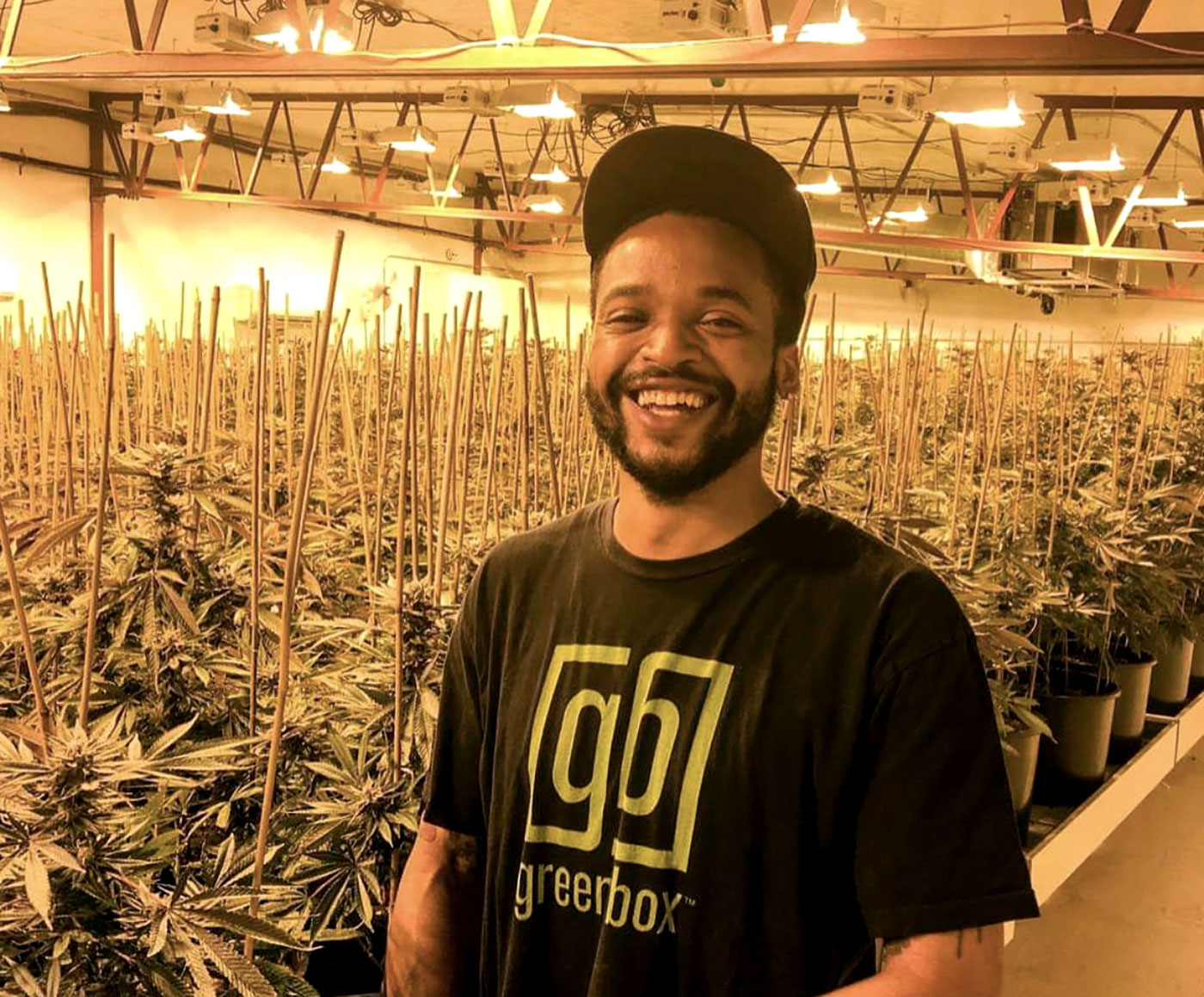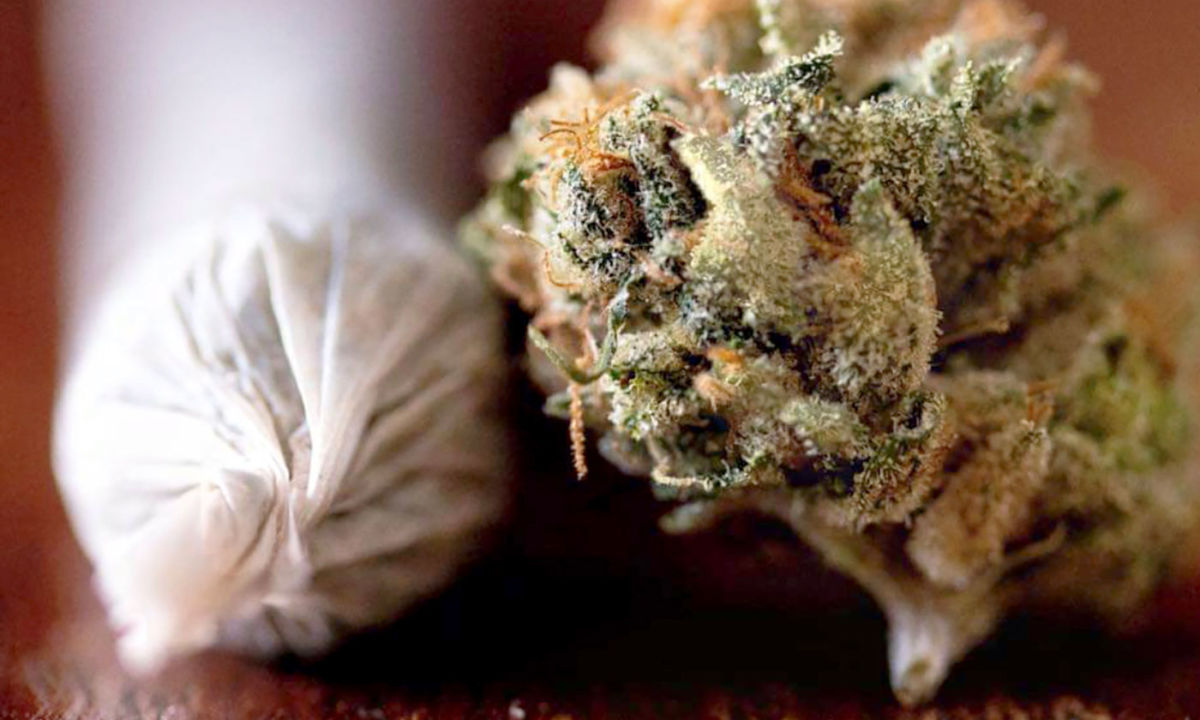A decade ago, Adrian Wayman was waiting for a bus in a Decatur, Georgia, park when he was approached by police.
“I’m not sure what prompted the search,” he said. “A bunch of Black teenagers hanging out at the park?”
They found a small amount of marijuana in his backpack and hauled him down to the jail where they booked him, fingerprinted him, and charged him with a misdemeanor.
How times have changed. Seven years after moving to Portland, Oregon, Wayman was awarded a $30,000 grant from the city to help bolster his marijuana delivery business, Green Box. It is part of a new program to help small cannabis businesses run by entrepreneurs from communities negatively affected by the war on drugs.
In a country where some form of marijuana is legal in 33 states, the grants make Portland the first jurisdiction to dole out cannabis tax money to this targeted community. It’s intended as a sort of reparation, an effort to level the playing field as the industry emerges. Oregonians voted to legalize recreational cannabis in 2014, and the city sees this grant program as a possible model for the rest of the country.
Wayman is grateful for the help. When he opened Green Box two years ago, it was novel — the first licensed cannabis delivery company in Portland.
His customers create a profile, identifying their weed preferences. “You might say, I like high [cannabis derivative] CBD, I don’t like lots of sugar, and I’m vegan,” he explained.
Green Box’s owner and sole employee, Wayman puts together curated boxes of marijuana goodies — chocolate-covered marshmallows, bath salts, pre-rolled joints, cake balls — and delivers them to clients.
His is one of two retail businesses that have received the grant so far. The other is Green Hop, a dispensary that also offers apprenticeships to young African Americans.
Another African American-run organization, called NuLeaf Project, is using a $90,000 grant to train marijuana businesses. The program will include instruction in typical business skills, like bookkeeping and budgeting, as well as addressing marijuana-specific challenges entrepreneurs might encounter.
In Portland, using cannabis tax dollars in this way is actually written into the city’s code. In 2016, voters approved a measure that specified three places where the city could spend revenue from a new 3 percent local tax on weed: drug and alcohol education, public safety, and helping small neighborhood businesses, by people from communities disproportionately harmed by the criminalization of marijuana.
The ballot measure didn’t say how much of the tax would go to each category, and at this point, the grants make up the smallest portion. The city had about $3 million in cannabis tax revenue during the 2017-2018 budget. It has devoted about $500,000 of that to help small businesses, including the $150,000 in grants. Another $350,000 is going toward workforce development and helping people get minor drug records expunged.

“I think in Portland we’ve really put our money where our mouth is in a way that’s maybe not true in other jurisdictions,” said Winta Yohannes, a policy advisor to Commissioner Chloe Eudaly, whose office helped develop the grant program.
There is no dispute that people of color have been disproportionally criminalized by drug enforcement, both in Portland and nationwide. For example, in the nine years prior to recreational cannabis legalization here, African Americans made up 21 percent of marijuana-related arrests but accounted for just 6 percent of the city’s population. There is also research showing African American-owned businesses struggle because they lack access to capital.
You can already see a disparity in the way the industry is emerging. “When you look at who’s leading the fastest-growing cannabis companies,” said Katherine Krajnak, a program manager with the city’s economic development office, “they tend to be White males … It’s a really obvious imbalance.”
Yohannes called the grants a way for the city to help steer the industry toward more inclusivity at this early stage. “The decisions we make now, we’ll either be really proud of 10 to 12 years from now or it will be another case where we look back and say, yet again, the same people benefitted, yet again, the same people were left out,” she said.
The application process for the grants is involved. Applicants must not only show they’re good business owners, but they must make panel presentations showing how the grant would provide a return on investment. “I prepared for it like I was going on Shark Tank,” Wayman said.
When he learned he was selected, he burst into tears. “Who knows how many jobs [the marijuana conviction] kept me from getting,” he said. He also can’t help but think that if he was White, he may never have gotten searched and arrested in the first place. (In Oregon, misdemeanors do not disqualify you from becoming licensed in the cannabis trade.)
The grant will enable Wayman to hire someone to improve the Green Box website. “Our website has a lot of friction,” he said. “Any friction and people will leave the site in a heartbeat.” It also allowed him to place a large bulk order for their signature cardboard boxes, reducing the cost by more than half. The grant, he said, “enables us to leap forward. It’s an unbelievable opportunity.” He’s also enrolling in the training program.
Certainly, there are critics of the grant program. The Cascade Policy Institute, a free-market think tank, called it “crony capitalism disguised as affirmative action. … Whether or not [the mission] is worthwhile, it’s hard to see why public money should be given away for private wealth creation.”
Others have problems not with the racial aspect of the grants, but with marijuana itself, which, of course, is a drug. They see supporting cannabis businesses as a way of helping people “get hooked.”
But the state’s electorate has clearly moved past that. Now the city is conducting surveys of the local cannabis business landscape and evaluating the way the cannabis tax dollars are spent as the industry grows. In the future, Yohannes said, more money might go toward equity grants and less toward things like law enforcement.
Krajnak said these kinds of grants are a way of building more wealth. When a local sector grows unevenly, exacerbating disparities, the local economy doesn’t reach its potential. “We’re growing businesses that will pay city taxes later,” she pointed out. “So it comes back around.”
Join us in defending the truth before it’s too late
The future of independent journalism is uncertain, and the consequences of losing it are too grave to ignore. To ensure Truthout remains safe, strong, and free, we need to raise $47,000 in the next 8 days. Every dollar raised goes directly toward the costs of producing news you can trust.
Please give what you can — because by supporting us with a tax-deductible donation, you’re not just preserving a source of news, you’re helping to safeguard what’s left of our democracy.
